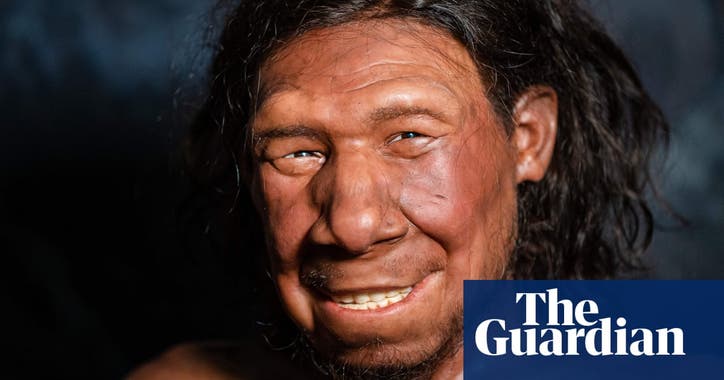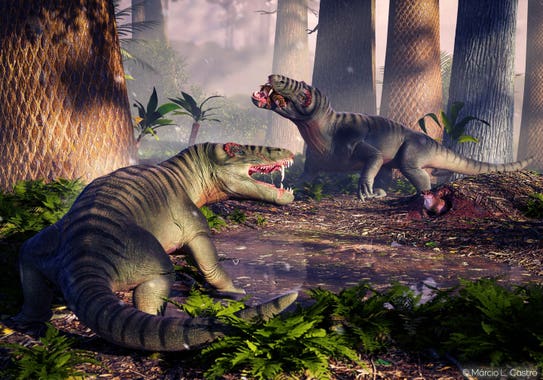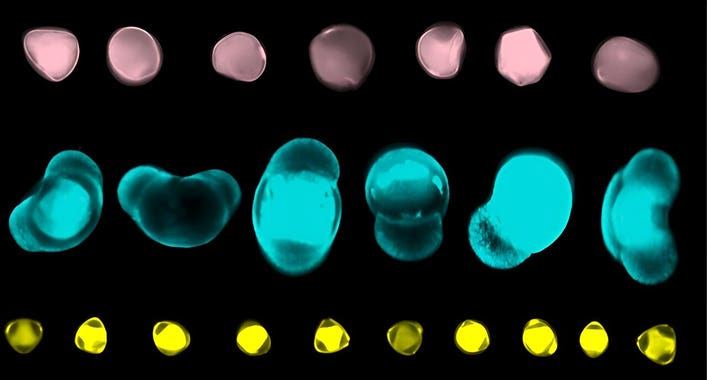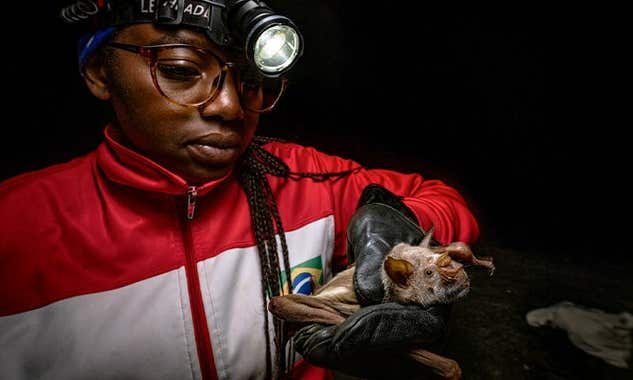Neanderthal DNA may explain why some of us are morning people (www.theguardian.com) Polish
Scientists find genes inherited from our prehistoric cousins increase tendency to rise early – useful in regions with short winter days

Scientists find genes inherited from our prehistoric cousins increase tendency to rise early – useful in regions with short winter days





Before epilepsy was understood to be a neurological condition, people believed it was caused by the moon, or by phlegm in the brain. They condemned seizures as evidence of witchcraft or demonic possession, and killed or castrated sufferers to prevent them from passing tainted blood to a new generation.

Before epilepsy was understood to be a neurological condition, people believed it was caused by the moon, or by phlegm in the brain. They condemned seizures as evidence of witchcraft or demonic possession, and killed or castrated sufferers to prevent them from passing tainted blood to a new generation.

Can we inherit memories? This controversial idea, which goes back to antiquity, was rejected since it violates a fundamental dogma known as “The Second Law of Biology”. Traits acquired during life should not become heritable. Your children won’t know the content of the books you read, right? However, we discovered using...

To produce plant-based cheeses that feel and taste like dairy cheese, scientists have their sights set on fermentation. In a new research result, University of Copenhagen scientists demonstrate the potential of fermentation for producing climate-friendly cheeses that people want to eat.

The female orca was found far from her normal hunting ground with six whole sea otters in its stomach and one lodged between its oral cavity and the esophagus.
Paleontologists at University College Cork (UCC) in Ireland have discovered X-ray evidence of proteins in fossil feathers that sheds new light on feather evolution.

The bright lights of big cities could be causing an evolutionary adaptation for smaller eyes in some birds, a new study indicates.

If you looked up 66 million years ago you might have seen, for a split second, a bright light as a mountain-sized asteroid burned through the atmosphere and smashed into Earth. It was springtime and the literal end of an era, the Mesozoic.

Accelerating research by sharpening the focus on unknown proteins. UK researchers have developed a new publicly accessible database, and they hope to see it shrink over time. That’s because it is a compendium of the thousands of understudied proteins encoded by genes in the human genome, whose exis

Sitting calmly in their webs, many spiders wait for prey to come to them. Arachnids along lakes and rivers eat aquatic insects, such as dragonflies. But, when these insects live in mercury-contaminated waterways, they can pass the metal along to the spiders that feed on them.

Dinosaurs have quite the reputation for being the largest, fiercest predators in life's history. Yet, 40 million years before dinosaurs ruled, Pampaphoneus biccai dominated South America as the biggest and most bloodthirsty meat eater of its time.

Tom Hardy and his Marvel character Venom have given their names to a newly-discovered Australian spider. The genus Venomius and its only current species Venomius tomhardyi were described following an expedition to Tasmania.

South Africa is renowned for having one of the world's biggest populations of great white sharks (Carcharodon carcharias). Substantial declines have been observed, however, in places where the sharks normally gather on the coast of the Western Cape province. Sharks congregate at these locations to feed, interact socially, or...

A global team of scientists has identified and named a new species of leaf-tailed gecko from northern Madagascar, known as Uroplatus garamaso. Leaf-tailed geckos are masters of camouflage. Some species have skin flaps around the whole body and head, complemented by flat tails.

An emerging system which combines rapid imaging with artificial intelligence could help scientists build a comprehensive picture of present and historic environmental change—by swiftly and accurately analyzing pollen.

An international research team has clarified the mode of action of cannabinoids in inflammation. The German federal government recently made the contentious choice to decriminalize the ownership and purchase of minor quantities of cannabis. Should the German legislature approve the draft bill, t

The research helps understanding of the earliest moments of life and the reasons behind infertility.

The rapid sea level rise and resulting retreat of coastal habitat seen at the end of the last Ice Age could repeat itself if global average temperatures rise beyond certain levels, according to an analysis by an international team of scientists from more than a dozen institutions, including Rutgers.

Researchers in Japan have identified how the WOX13 gene negatively controls the destiny of regenerating plant cells, affecting the efficiency of shoot regeneration. Plants possess the unique ability to completely regenerate from a somatic cell.

Our reporter joins scientists in Mozambique to understand how bats communicate with one another.
